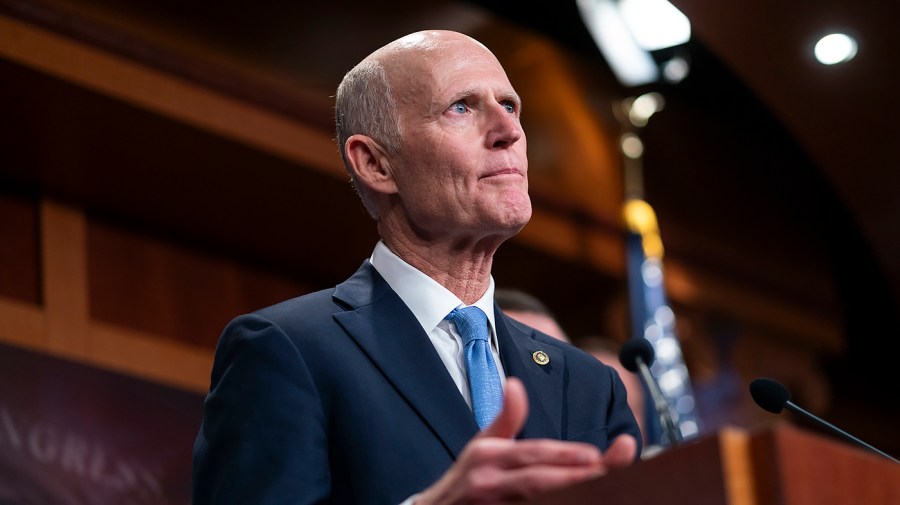
Sen. Rick Scott (R-Fla.) says he would support replacing Florida’s six-week state abortion ban with a 15-week statewide ban that he believes would reflect broader consensus within the Sunshine State over how to protect unborn life.
Scott says any 15-week statewide abortion ban should include the standard exceptions for cases of rape, incest and to protect the life of the mother.
Scott, who is running for reelection to a second Senate term, says he remains staunchly “pro-life” and signed “every pro-life bill that came in front of me” while he served as Florida governor from 2011 to 2019.
But he says that “in Florida there’s way more consensus around 15 weeks with exceptions for rape, incest and the life of the mother.”
“So if I was writing a bill, I’d think that 15 weeks with the limitations [for rape, incest and to protect the life of the mother] is where the state’s at,” he told The Hill in an interview. “I think it’s important we do what there’s consensus” for.
Scott says he’s not in any way backing away from his support for protecting unborn life but wants to put the focus of the Senate campaign debate on Democrats who favor allowing abortions until shortly before birth. Abortions are rarely performed in the third trimester.
“I’ve been pro-life, and I think we need to continue to the importance of being pro-life and I think the other thing is we ought to be very clear that Democrats are barbaric. They want — they’ve already voted to allow abortion up until the moment of birth,” he said.
Asked specifically if he would favor replacing the six-week abortion ban signed into law a year ago by Gov. Ron DeSantis (R) with a 15-week statewide ban, Scott said: “If I was writing a bill, I think 15 weeks is where the state is.”
Scott made his comments two weeks after the Florida Supreme Court upheld the state’s ban on most abortions after 15 weeks of pregnancy, setting the stage for DeSantis’s six-week abortion ban to take effect next month.
The six-week ban had been paused from taking effect while proponents and opponents of abortion rights battled over the constitutionality of a 15-week ban, which DeSantis had signed into law in 2022.
Now that the state Supreme Court has upheld that 2022 law with a 6-1 vote, the six-week ban can take effect next month. The six-week ban includes exceptions to save the life of the mother and for pregnancies caused by rape or incest as long as they are terminated by the 15th week.
The Florida Supreme Court also ruled this month by 4-3 margin that voters may consider a ballot initiative that would amend the state Constitution to protect the right to an abortion.
The amendment if passed would decree that now law should prohibit, penalize, delay or restrict abortion before a fetus becomes viable outside the womb nor should any law restrict abortion when it is “necessary to protect the patient’s health, as determined by the patient’s health care provider.
Florida Democrats, including Scott’s opponent, former Rep. Debbie Mucarsel Powell (D-Fla.), want to put the issue of abortion rights in the spotlight ahead of the general election.
Democratic strategists expect women voters to turn out in large numbers to vote for the ballot initiative to protect abortion rights.
Scott in a statement issued after the state Supreme Court’s ruling said: “We all know that life is the greatest gift we have ever received, we want to welcome every unborn baby into life, and we prefer adoption over abortion.”
He said policy makers “must work hard to make adoption more affordable” and pledged to “always protect IVF.”
He accused Mucarsel Powell of opposing any limits on abortion.
Mucarsel Powell’s campaign released a memo earlier this month calling the Supreme Court’s abortion ruling a “gamechanger” and declaring that Scott’s stance on abortion rights poses “an existential threat to his reelection bid.”
“It makes me more committed than ever to make sure that we not only pass the ballot amendment … but to make sure I win,” the Democratic candidate told The Hill in an interview after the court’s ruling.














